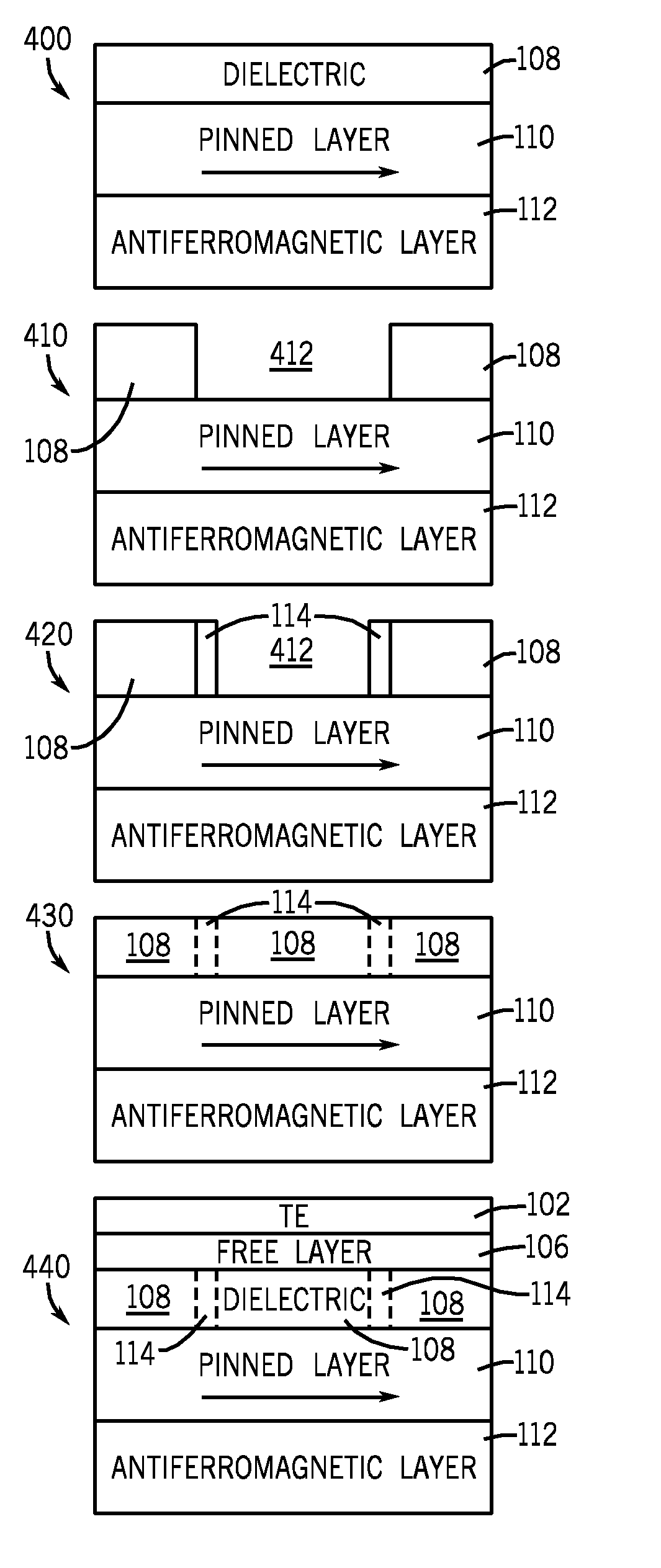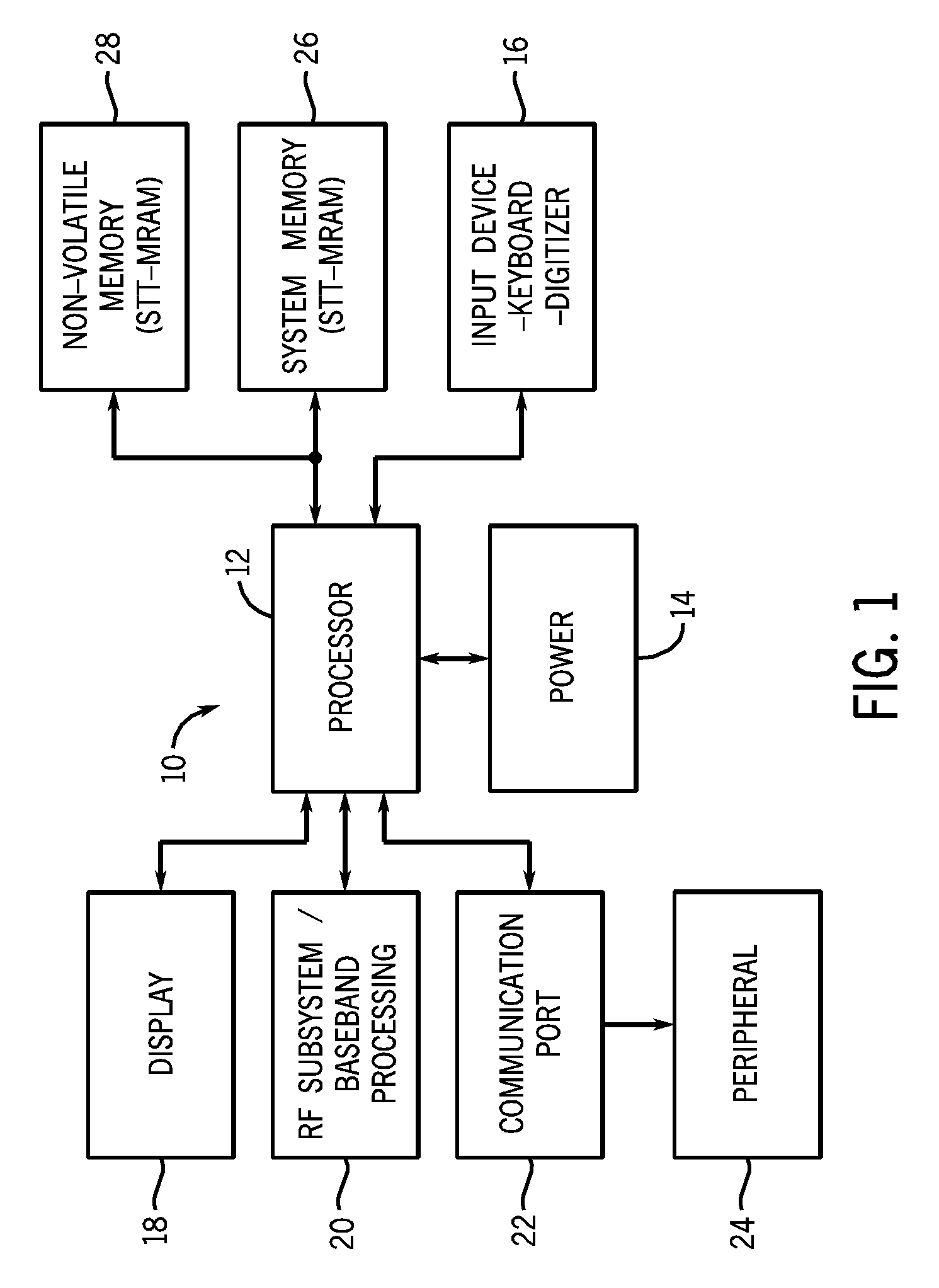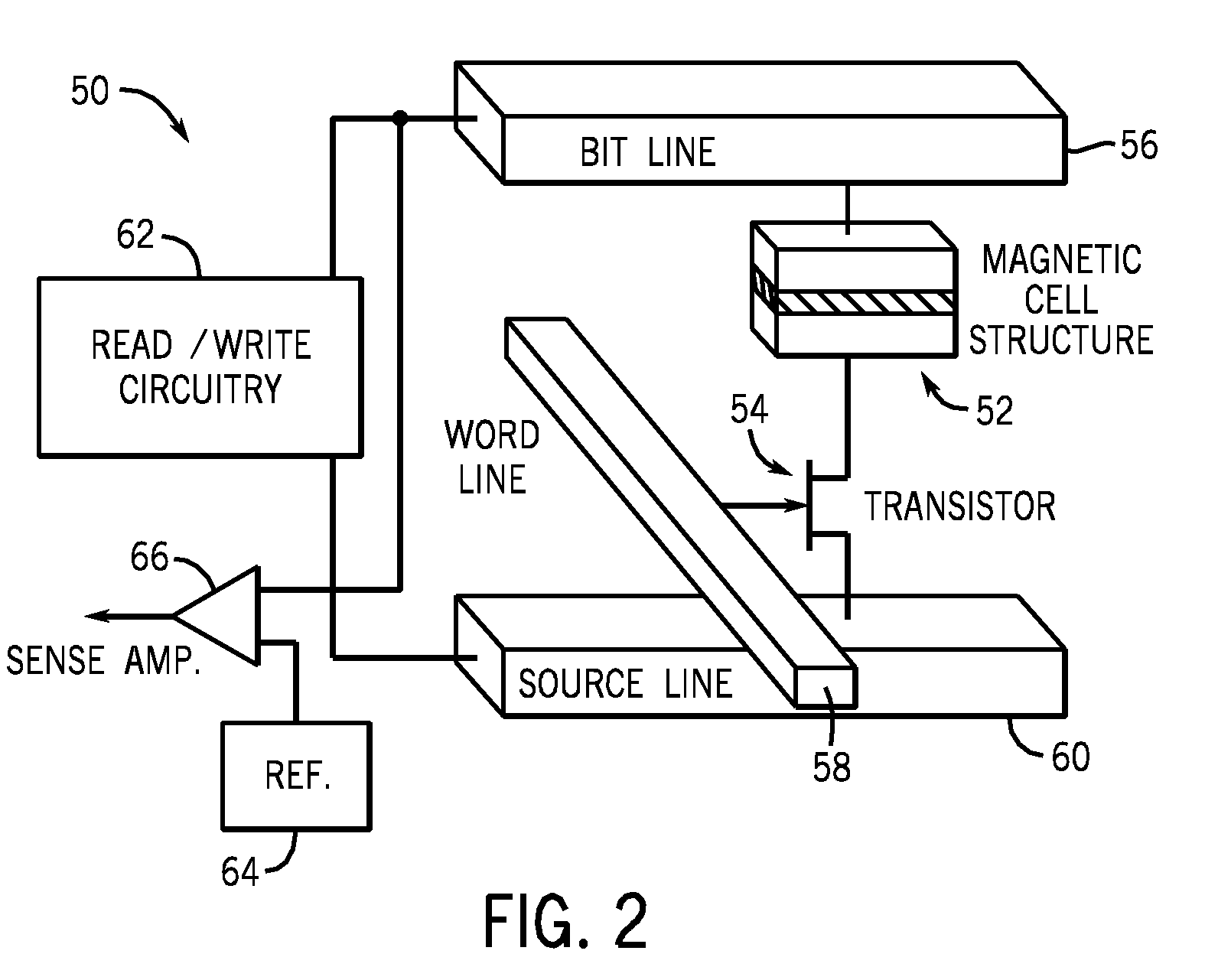Stt-mram cell structures
a stt-mram cell and structure technology, applied in the field of magnetic random access memory, can solve the problems of high programming current density through the stt-mram cell, limited scalability of the mram cell, and prone to write disturbance, and affect the integrity and reliability of the cell
- Summary
- Abstract
- Description
- Claims
- Application Information
AI Technical Summary
Problems solved by technology
Method used
Image
Examples
Embodiment Construction
[0020]As previously discussed, a spin torque transfer magnetic random access memory (STT-MRAM) cell is programmed by switching the magnetization of the free layer in the cell's magnetic cell stack. Switching occurs when the current density passing through the memory cell is larger than the critical switching current density. Thus, to program the cell, the programming current density need only be slightly higher than the critical switching current density. Since passing a larger programming current increases the energy consumption and the thermal profile in the cell stack, which affects the integrity and reliability of the cell, it is desirable to decrease the critical switching current without affecting the cell's thermal stability. Applying a lower programming current while maintaining a programming current density that is above the critical switching current density would allow a smaller current to switch the free layer of the cell. The following discussion describes the systems a...
PUM
 Login to View More
Login to View More Abstract
Description
Claims
Application Information
 Login to View More
Login to View More - R&D
- Intellectual Property
- Life Sciences
- Materials
- Tech Scout
- Unparalleled Data Quality
- Higher Quality Content
- 60% Fewer Hallucinations
Browse by: Latest US Patents, China's latest patents, Technical Efficacy Thesaurus, Application Domain, Technology Topic, Popular Technical Reports.
© 2025 PatSnap. All rights reserved.Legal|Privacy policy|Modern Slavery Act Transparency Statement|Sitemap|About US| Contact US: help@patsnap.com



